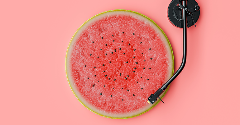News
Australia is converting stale beer into electricity
21 Aug 2020When lockdowns closed pubs, watering holes around Australia found themselves saddled with kegs of ales and lagers that were slowly passing their expiration date. However, instead of dumping them down the drain – which would require additional disposal permitting – the resourceful Aussies in the state of South Australia found a new life for these brews at the Glenelg Wastewater Treatment Plant in Adelaide.
Millions of liters of unused beer from local breweries have now found their way to this wastewater plant to be converted into renewable energy in the form of biogas.

Biogas in an innovative form of energy that is created in “digesters” that are concrete tanks that provide an oxygen-deprived environment in which organic industrial waste can mix with sewage sludge to produce biogas through an anaerobic process. Generally, this process produces 80% of the energy needs for this wastewater plant in southern Australia, however, the addition of stale suds has supercharged the process.
Now, Lisa Hannant, senior manager of production and treatment at SA Water, said in a statement that the plant is producing 654 megawatt hours of energy in a single month, which is sufficient to power 1,200 homes. All of this extra energy comes from 150,000 liters of expired beer that is donated to the wastewater plant weekly.
According to Hannant, the high caloric content of beer makes it “perfect” for the anaerobic digestion process due to its ability to release substantial amounts of heat and power the decomposition process to produce methane-rich gas.
Although these donations are not addressing the core issue of lost income for brewers, it at least provides a destination for beer that would otherwise be wasted. CNN affiliate 7News originally reported that one of the country’s largest breweries, Lion Beer Australia, is emptying 90,000 kegs or 4.5 million liters per month.
Related news

Retail landscape lacks nutritious and affordable food, says ATNi
30 Dec 2025
A rapid increase in modern food retail has given retailers growing influence over consumer diets, according to global non-profit ATNi’s latest assessment.
Read more
Debate over ban on ‘meaty’ names for plant-based products reaches stalemate
26 Dec 2025
The debate over a ban on plant-based products using “meaty” terms has reached a stalemate, leaving manufacturers in limbo and still facing overhauls to their marketing and packaging.
Read more
Multi-sensory food and drink products to gain traction in 2026
16 Dec 2025
Trend forecasters predict that sensory elements will play a larger role, helping food and beverage brands differentiate themselves in a competitive market in 2026.
Read more
Big appetite for M&A between European and US food and drink companies
3 Dec 2025
Persistent tariffs on EU food and beverage exports have helped drive record levels of M&A activity between European and US companies this year, according to analysis by ING.
Read more
Non-UPF Program extends certification scheme to entire food industry
30 Nov 2025
The Non-UPF Program has extended its certification scheme to the wider food sector, championing a move towards healthier consumption habits.
Read more
Lancet study links UPFs to chronic disease risk
26 Nov 2025
UPFs are consistently associated with an increased risk of diet-related chronic diseases, according to a comprehensive review of global evidence in The Lancet .
Read more
Concerns swirl around cinnamon’s compliance with EU law
25 Nov 2025
Cinnamon may be a top functional ingredient, but it needs stronger protocols to ensure it meets EU food safety laws and quality standards, say researchers.
Read more
Oat Barista: Innovation for game-changing beverages
20 Nov 2025
Oat Barista is a clean label, sustainable, and innovative drink base specifically designed to create the perfect foam in one single ingredient.
Read more
How younger consumers are redefining ingredient choices and rejecting brand loyalty
18 Nov 2025
Gen Z and millennial consumers’ preferences for transparency, functionality, and purpose are “redefining the very nature of consumption itself”, says SPINS.
Read more
Hybrid formats and flexible positioning to disrupt category norms in 2026
17 Nov 2025
Trend forecasters expect food and drink to move more fluidly across occasions, functions, and formats as consumers seek versatility, novelty, and convenience.
Read more